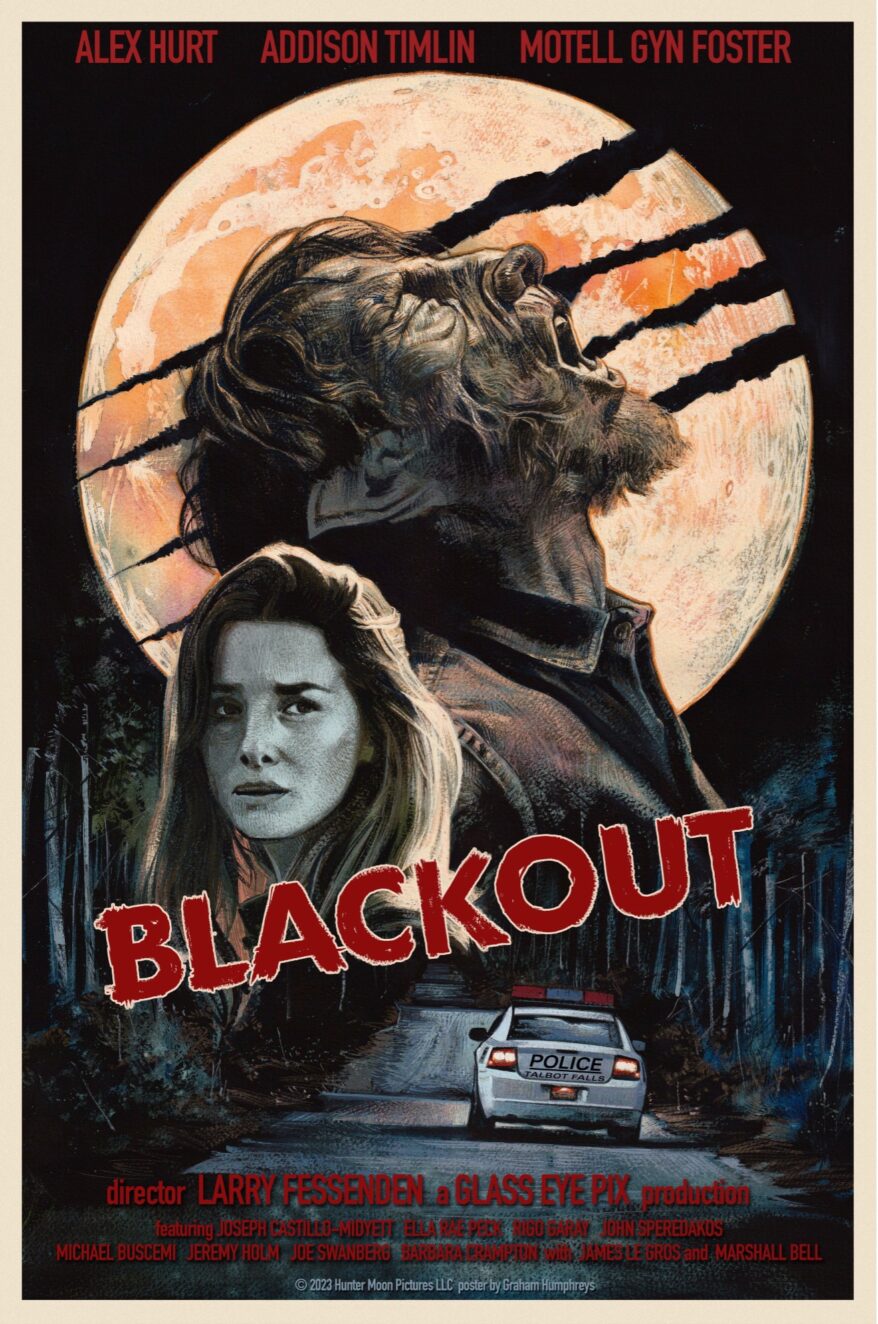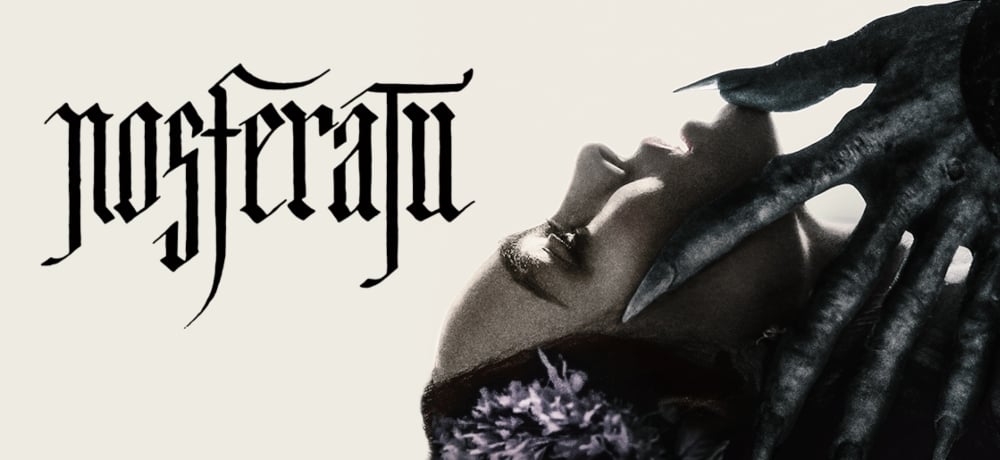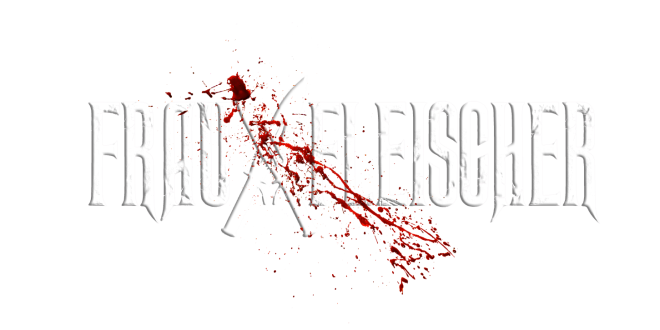‘Late Night With the Devil’ Poster Features 1970’s Talk Show Host David Dastmalchian
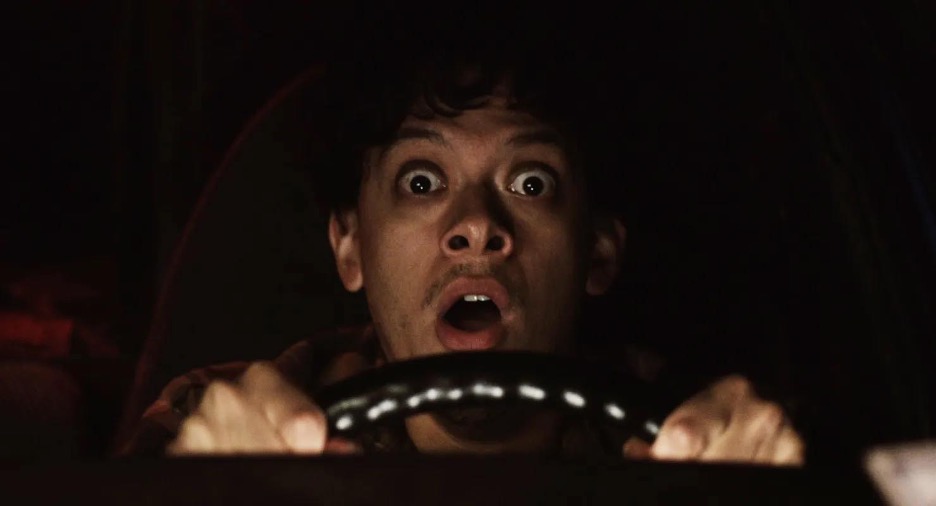
If you knew you were a threat to the ones you loved, that an uncontrollable beast lay dormant within you, what would you do? We found out what the lead character in Larry Fessenden’s “Blackout” does as his feature film made its world premiere at Fantasia Festival.
Charley (Alex Hurt) is an alcoholic artist who has now deserted his town for a month, living in a rather humble motel as he expresses himself through his paintings. He finally decides to return to take care of some unfinished business, including exposing the corruption behind a highly-respected developer (Marshall Bell; “Starship Troopers” and “Total Recall”), who also happens to be the father of his former love (Addison Timlin), whom he is trying to make peace with.
At the same time, he is concealing a terrible secret: he is a werewolf who has been recently infected by this curse. When the full moon rises, he cannot control what he becomes and leaves a trail of bloodied, innocent victims behind. A local Latino worker is being suspected of the grisly murders and Charley is hellbent on putting an end to these false accusations, in addition to the carnage that he is creating against his own will.

Larry Fessenden is an independent horror icon with over 100 acting credits, notably in “We Are Still Here”, “You’re Next” and “I Sell the Dead”. Fessenden wrote and directed his latest horror film, and after exploring Universal Monster-esque themes such as vampires in “Habit” from 1995 and Frankenstein’s monster in “Depraved” (also presented at Fantasia in 2019), Fessenden now embarks on a tale of lycanthropy.
He directs the same way as he seems to be in real life: laid back, lots of humor and sarcasm, yet with a touch of grounded emotions. He knows how to exploit his independent-level budget in terms of make-up effects, practical effects, and location utilization.
“Blackout” takes place in a more rural area of upstate New York and, while it revolves around the fact that his main character deals with all sorts of his demons (one of them more dangerous than the others), there are still very contemporary themes that are addressed, such as environmentalism, racism, and alcoholism.
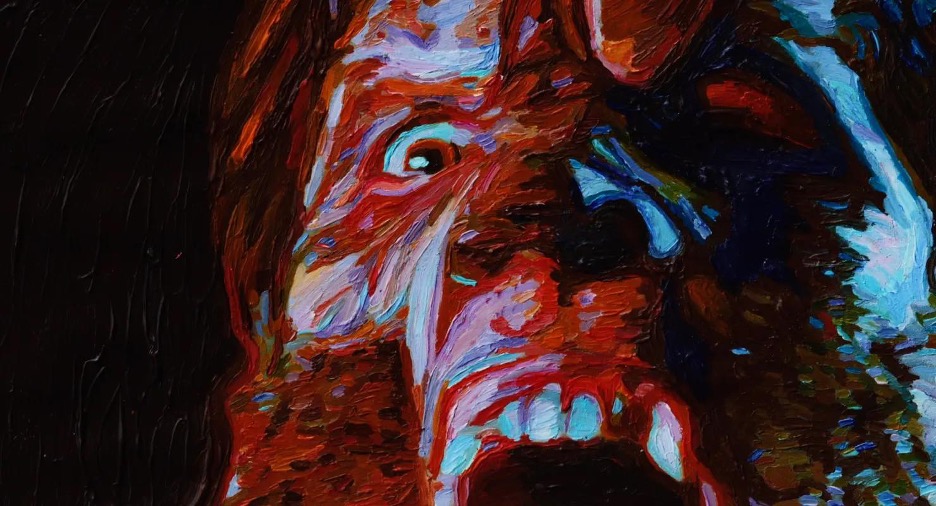
Alex Hurt portrays a very likable and respectable character who stands up for what he believes is right. Whether he is defending the conservation of the environment or standing up for solid citizens who become targeted because of the color of their skin, Charley is a man of good values, despite struggling with alcoholism and lycanthropy. Hurt seems extremely authentic in his performance and viewers will most definitely get attached to him from the get-go.
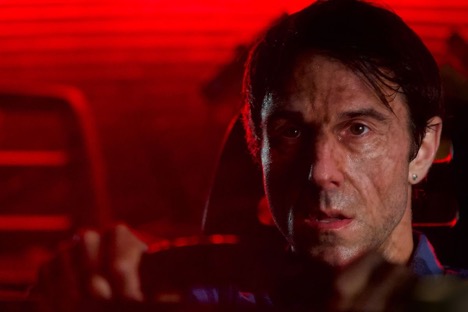
The most amusing aspect of “Blackout” for die-hard horror fans are the entertaining appearances of actors from the world of horror cinema, sprinkled throughout the film. You’ll witness the likes of (the still absolutely stunning) Barbara Crampton (“Re-Animator”, “From Beyond” and “You’re Next”), Kevin Corrigan (“Some Guy Who Kills People” and “The Last Winter”), Jeremy Holm (“The Ranger”) as well as Joe Swanberg (“You’re Next”, “V/H/S” and “The Sacrament”). All deliver enjoyable performances with some ending up more bloodied than others, but we’ll let you discover who.
Unfortunately, Fessenden’s film doesn’t reinvent the wheel in terms of werewolf movies, nor does it break the threshold of an outstanding horror film. The special effects are simplistic (due to budgetary reasons) and decent, at best, and there are long stretches (too long) of inactivity as Charley attempts to right the wrongs done to his town and the few respectable inhabitants that remain.
By the end of the movie, there is no true sense of amazement or astonishment upon reflecting on its viewing; not during the movie, and not after. That being said, it does succeed in having a werewolf transformation in a unique context never-before-seen in other werewolf movies.
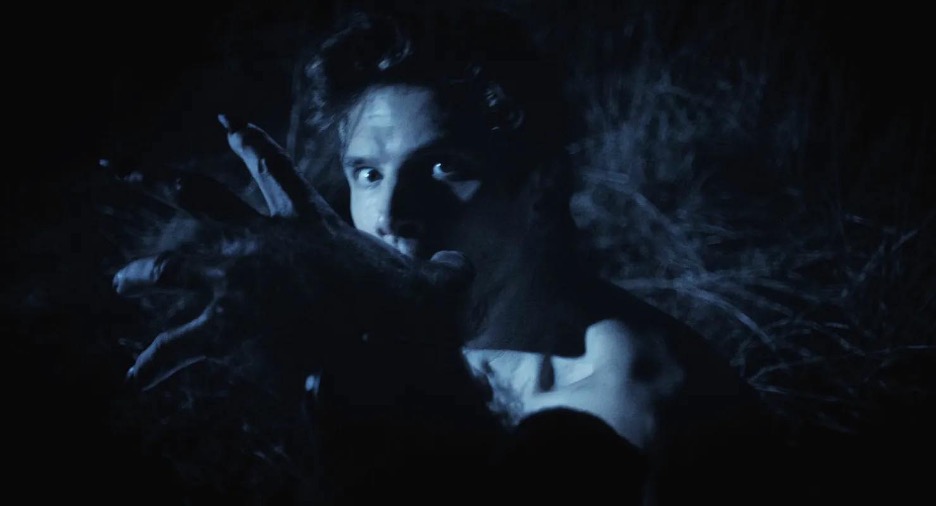
“Blackout” remains a pleasant, yet forgettable, entertainment material for fans of independent horror movies; focusing more on the aspects of environmentalism and racism than on the potential violence, carnage or fear that lycanthropy could have been demonstrated throughout its tale.
It also didn’t fully venture into the comedy aspect of horror such as the “Wolf Cop” franchise. It remains a grounded, emotional, and dramatic venture of one man attempting to fix the broken pieces of his town where he is the culprit at times, and not at all, at other times. After making its world premiere at Fantasia, Larry Fessenden’s film will most likely continue its rounds of movie festivals.
“Blackout” receives the passing grade of 3 eyeballs out of 5.

